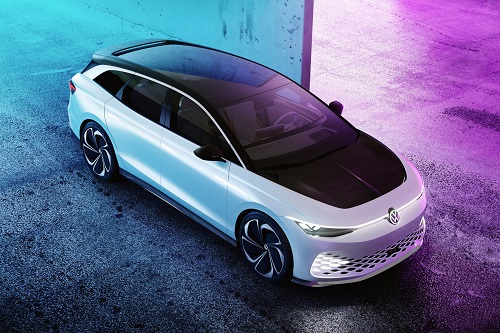VC Predictions of electric cars in 2023
2023 is set to bring even more momentum to the electric-car industry than 2022 did.
Khodrocar - The electric-vehicle industry gained a lot of momentum in 2022: Car companies are spending more than $515 billion to pivot from gas engines to electric ones, and that requires a whole lot of battery, charging, supply-chain, and manufacturing know-how.
Even with challenges — and some executives' losing faith in the EV biz — the industry can't turn back on its ambitions. To get a sense of what to expect out of the industry in 2023, Insider surveyed six vaenture capitalists who monitor the many big companies, startups, sectors, and trends brewing in the world of EVs. Here's what they think.
A battery bonanza and a reworking of supply chains
Venture capitalists think the EV push — especially in the US — can only see more success with improvements in battery supply chains and manufacturing. It's no surprise this is the area they expect to see grow the most in 2023.
Stakeholders, car buyers, policymakers, and more can anticipate all sorts of opportunities in batteries, particularly as the industry reinvents the way it has long been doing things.
Even with challenges — and some executives' losing faith in the EV biz — the industry can't turn back on its ambitions. To get a sense of what to expect out of the industry in 2023, Insider surveyed six vaenture capitalists who monitor the many big companies, startups, sectors, and trends brewing in the world of EVs. Here's what they think.
A battery bonanza and a reworking of supply chains
Venture capitalists think the EV push — especially in the US — can only see more success with improvements in battery supply chains and manufacturing. It's no surprise this is the area they expect to see grow the most in 2023.
Stakeholders, car buyers, policymakers, and more can anticipate all sorts of opportunities in batteries, particularly as the industry reinvents the way it has long been doing things.

"What's going to be relevant both in '23 and probably for the next seven to 10 years is how do we reshore — or just shore, period — our EV and overall battery supply chains?" said Aidan Madigan-Curtis, a partner at Eclipse Ventures. "There's a lot of pressure on these supply chains to figure out how we do things efficiently."
"One of the areas that we're most interested in exploring is on the mineral discovery side," she said, adding that she also anticipates raw-materials processing and production of battery cells to gain momentum. "Pack manufacturing is where we see the biggest opportunity right now."
In addition to opportunities on the supply side, expect improvements in battery tech. Automakers are exploring different types of batteries to get a leg up on the competition.
"Expect to see higher-energy-density, faster-charging batteries, and pack-level innovations get more traction," Rajesh Swaminathan, a partner at Khosla Ventures, told Insider.
Charging, charging, charging
Historically, charging hasn't been a money-making venture. To satisfy early EV buyers, automakers have teamed up, conducted mergers and acquisitions, and made other strategic moves.
Now the industry could be at a tipping point.
"The infrastructure capital is coming in," said Brian Walsh, the head of Wind Ventures. "It's an indication that the risk of deploying EV-charging infrastructure has reached a point where it's no longer risk capital" — or otherwise risky.
While it's been difficult to determine where exactly to install charging stations, as more people buy and drive EVs, companies have more insight into where charging would be most beneficial.
"The second wave is happening now, and it's going to correct or address a lot of the shortcomings" of existing infrastructure, Walsh said. "We can also now predict, as the Amazon fleet, for example, grows, where they will have to have charging hubs."
Chris Stallman, a partner at Fontinalis, predicted that more automaker commitments, government support, and public interest will continue to bolster the EV transition in 2023. Stallman is confident in the industry, even with a shakeout possible.
"Customers and investors are becoming more discerning, and automakers, dealers, consumers are coalescing around what they truly want and need," Stallman told Insider.
Keep an eye out for companies that simply won't be able to make it. "The reality is that it is unlikely that every company will succeed, but some will certainly do so," Stallman said.
Alexei Andreev, a managing director at AutoTech Ventures, said a shakeout could come in the battery industry, where hundreds of startups are racing to compete with giants.
"It's a question of capital formation and investment decisions. If I'm LG, if I'm Samsung, if I'm SK or BYD or Panasonic, they do what they know the best," Andreev told Insider in the fall. "But as a startup, I have no chance to compete with those established players.
Cruise AV
The autonomous-vehicle industry took several hits in 2022, but General Motors is still optimistic about Cruise. Cruise
Self-driving
The autonomous-vehicle industry took a few hits in 2022: Argo AI, a startup backed by Ford and Volkswagen, shut down, while the GM subsidiary Cruise became the focus of an investigation, TuSimple struggled with layoffs and executive churn, and Aurora debated a sale.
But Robert Ravanshenas, a partner at Maven Ventures, said he expects municipalities to start capitalizing on what AVs can offer for cities next year. He predicted self-driving consumer transportation will pick up next year, following on big advances in 2022 by the likes of Waymo and Cruise.
"As a result, all pieces of the transportation supply chain," he added, "will begin developing second-order technologies that enhance the experience within autonomous vehicles."
Latest News


